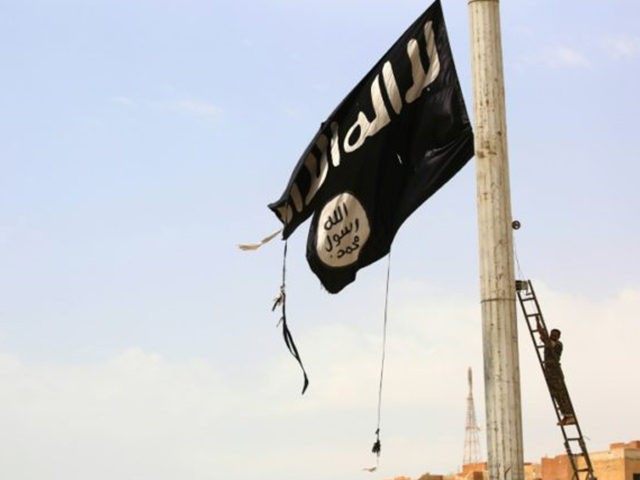Iraqi officials are preparing for the arrival of Prime Minister Haider al-Abadi to the nation’s largest city, Mosul, to declare victory after three years of Islamic State (ISIS) control.
Iraqi’s state television network, al-Iraqiyah, has “announced the end” of ISIS in the city while Abadi posted on Twitter that the “end of the fake Daesh” state had arrived with the “liberation of Mosul.” Daesh is an Arabic acronym for ISIS:
According to Iraq’s al-Sumaria television, Abadi said in a statement that the Iraqi government would continue to challenge the Islamic State in the few remaining pockets of territory it still controls in the country. His complete announcement on the liberation of Mosul is expected Thursday, when, reports suggest, he will arrive in West Mosul.
The Kurdish outlet Rudaw reported that Abadi first met with the military Joint Command and would arrive in Mosul later. Joint Command, the military leadership of the country, said in a statement that “Iraqi forces are close in announcing ‘their big military victory over the ISIS militants.'”
Brigadier General Yahya Rasool, a spokesman for the Iraqi military, also announced on television that “their fictitious state has fallen.”
Iraq’s U.S.-trained Counter Terrorism Service (CTS) assured Rudaw that “there is no area in Mosul controlled by the terrorists,” but “tens” of jihadis may still be in the city. A coalition consisting of Sunni Arab, Kurdish, and Shiite fighters surrounded Mosul’s city limits as the first step in the battle to free the city to prevent jihadists from escaping and joining other Islamic State battlefields in Iraq or Syria.
Also on Thursday, the Iraqi government announced the liberation of the Grand al-Nuri Mosque, where Islamic State “caliph” Abu Bakr al-Baghdadi delivered a speech announcing the establishment of a caliphate in 2014. The liberation of the mosque was bittersweet, as ISIS had reduced the 850-year-old mosque to rubble. The Islamic State has routinely targeted historic locations and museums for destruction, though typically only destroying Pagan, Christian, and non-Sunni Muslim artifacts that it claims promotes “idolatry.”
Al-Sumaria published video from the area where the al-Nuri Mosque had once stood:
The fall of Mosul will largely mean the end of the Islamic State in Iraq. The government must now not only rebuild Mosul, northern Iraq and all the damaged areas in the country, but restore the nation to normalcy. A major hurdle to the restoration of a coherent state apparatus is the variety and scope of the non-government militias created and combined to form the anti-ISIS coalition. Among them are the Kurdish Peshmerga forces, based in Erbil, whose political leaders have already announced they do not want to remain part of Iraq. The Kurdistan Regional Government (KRG) will hold a referendum on declaring independence as sovereign Kurdistan on September 25, partially citing their success fighting ISIS as proof that they can function as a country.
Of even greater concern are the Popular Mobilization Forces (PMF), a group of mostly Shiite militias supported by state sponsor of terrorism Iran. The Iraqi government legitimized the PMF through legislation this year to grant them the legal authority to operate against ISIS inside of Mosul’s city limits – where Baghdad prevented the Peshmerga from going. With ISIS eliminated, however, there is no legitimate reason for the PMF to continue existing. There are an estimated 100,000 Shiite fighters in Iran-backed militias in Iraq. These groups are especially concerning because of their strident anti-American sentiment.
“We will chase and fight any American force deployed in Iraq. Any such American force will become a primary target for our group. We fought them before and we are ready to resume fighting,” one militia leader told Reuters in 2015. Similar militias in Syria have already attacked American troops in al-Tanf, Syria, a southern desert area through which the road that connects Damascus to Baghdad winds.
The Iraqi government has yet to present a concrete plan on how to address these militias.

COMMENTS
Please let us know if you're having issues with commenting.